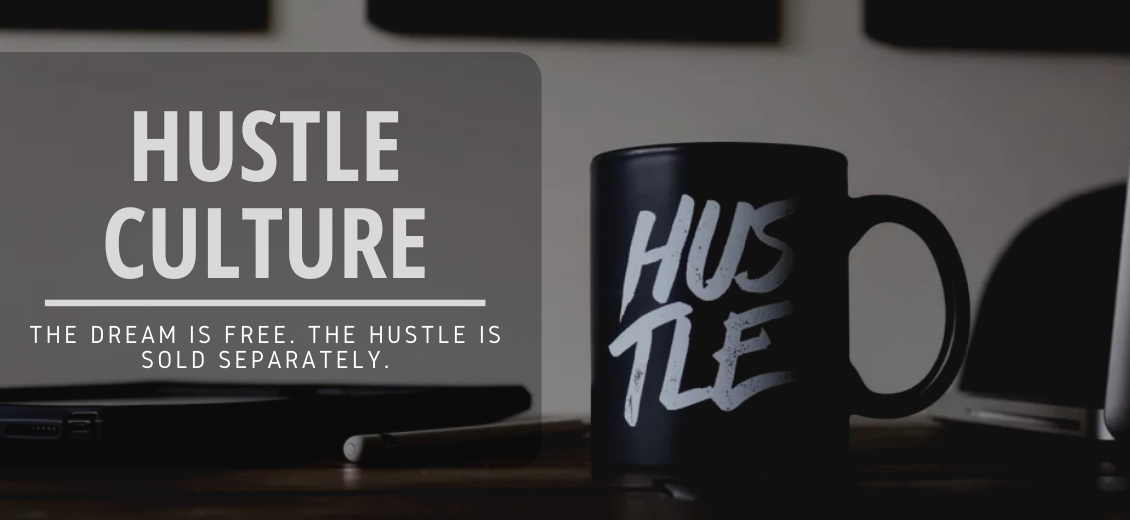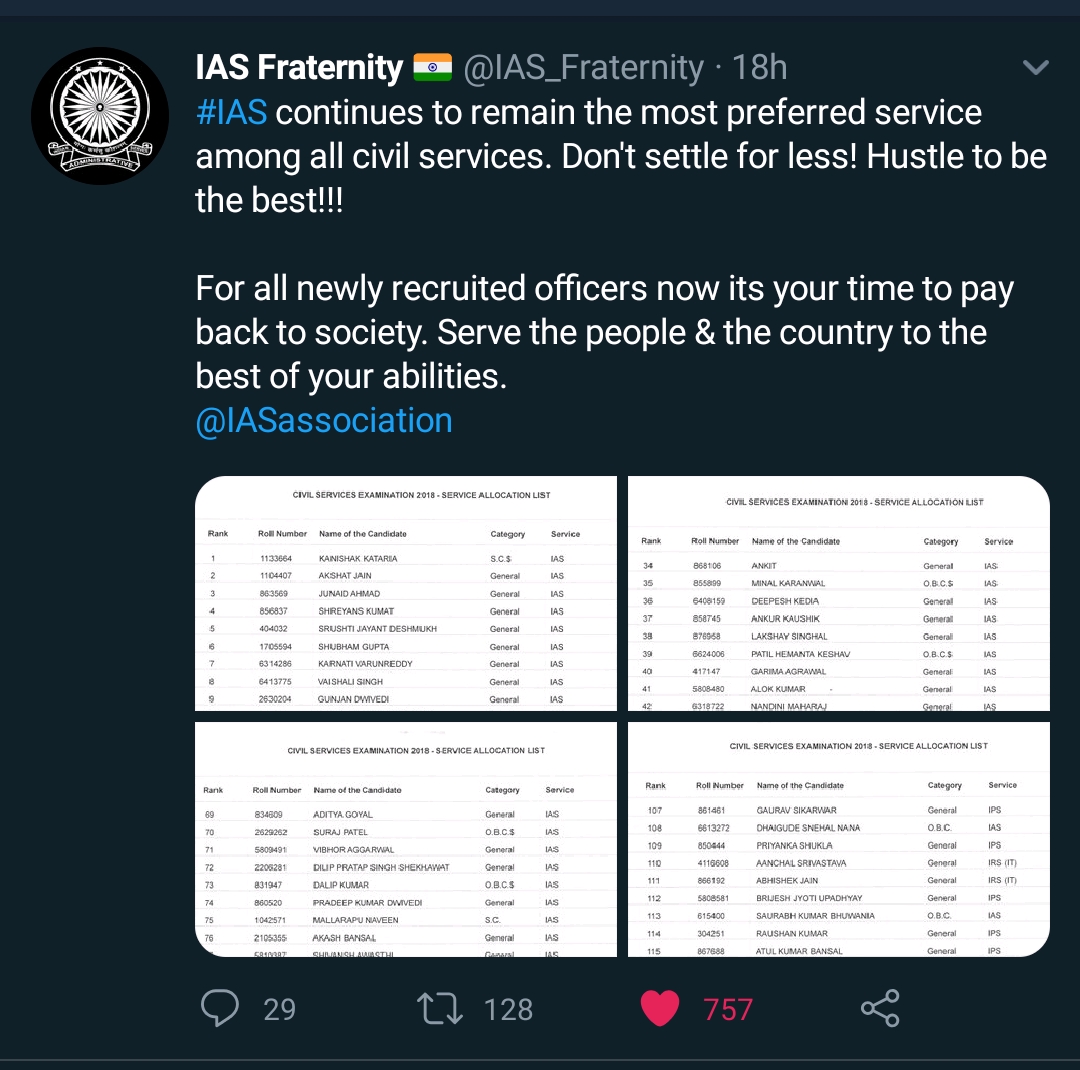Hustle Culture: a Capitalistic fad or the real deal?
Blogs Home
- 05 Sep 2019

“You gotta hustle for what you want otherwise you don’t want it enough.”
#grindneverstops #sleepisforlosers #hustlehard
You’ve probably seen these hashtags and ‘inspirational’ quotes hogging a good part of your feed on social media. In recent years, one term that has been constantly screamed out and shoved down our collective throats is ‘hustle’. Let’s talk about that.
First things first, what is hustle?
It truly depends on who you choose to ask. To some, 'hustle' is the name of a ‘struggle without complaints’ which eventually lead you to success; to some, it is the ability to overcome rejection, or knowing how to get noticed, and/or sustaining a very strong work ethic.
However, to some, it is also a societal standard - that you can only succeed by exerting yourself at max capacity - easily termed as extreme workaholism. It is a social medal you win if you are willing to sacrifice not only your sleep, family and social life, but also and most importantly - yourself.
As a Literature student who knew what she wanted to pursue throughout her high-school life, I can’t help but feel the pressure and an underlying ever-present feeling of unworthiness each time I used to take a peek at my report card. I say a peek because the moment I see a B- in a paper that I was confident about, I sink a little lower in my seat and my head automatically bows down.
I learn new things everyday but why is it that I can't help but believe that those who strut around in the library looking for new books - I see them each time I visit the library to pass my free periods - are the ones that really put in the effort and hence, score a lot better than I do. Is it that always-present stack of books in their arms? Or is it the visibly tired look on their faces indicating that they are pulling all-nighters? What could be it?
I cannot help but question myself. I took up the literature degree because I wanted to learn, which I am actively doing. Then why do I feel a pang each time I see somebody looking tired from and occupied with their studies and wishing that I could work like that? It is in this matter that I reached an epiphany a few days ago.
This constant state of movement that people around me seemed to be in, trying to make their days as productive as they possibly can, made me believe that the work I was putting in, and putting in comfortably, wasn’t enough. I needed to hustle.
But the whole idea of to hustle is to sell a lie.
And everything I do to relax myself is something that assuages the soul (something which is greatly important) but sadly it is an alien concept to the demands of the contemporary hustle culture. Hence, the moment I stop ‘hustling’, I feel like I have stopped working on myself to become a ‘better me’. And this is wrong!
Hustle doesn't have any breaks. It is a tireless pursuit. It only ends with the accomplishment of the goal. Also, stopping is for the weak. Elon Musk, the co-founder and CEO of Tesla and SpaceX, in an article published by the Business Insider, says, “nobody ever changed the world on 40 hours a week” and he further noted that when you pursue what you love “it (mostly) doesn’t feel like work”.
All of this talk makes me feel that either my interests lie somewhere else, making all of the expensive aptitude and career tests I took seem stupid, or that I am not as smart as assumed myself to be, because I certainly do not post an aesthetically pleasing picture of my morning tea on my Instagram reading #ThankGodIt’sMonday.
Hustle culture does not sleep. Hustle culture does not take lunch breaks.
Hustle culture is waking up on a Sunday morning and making to-do lists for the oncoming week instead of making plans with your friends and loved ones to spend the sabbath.
Here the IAS Fraternity tweets about 'hustling to be the best'...
Now, one would think that it is a good trend. Out of all of the mind-numbingly stupid social media trends out there, this is genuinely one of the very few trends that can be beneficial, right? It can actually encourage the Gen Z and the Millenials, alike, to get off their butts and work for what they want, right? Not really.
Hustle culture glorifies the pursuit of goals, yes; but it comes, more often than not, at the cost of one’s socio-psychological health. It becomes like Sisyphus' curse. Sisyphus was cursed to roll a huge boulder to the top of a slope, only to watch it roll back to the bottom so that he had to start all over again. A part of the curse was that he couldn’t have given up, even when he knew that he would fail again and again. The result? An eternal punishment.
Hustle culture is thus seen validating and idolising what it is referred to as a ‘curse’. It not just validates struggle but also glorifies it which makes it difficult for people to gauge when to stop. Very much like Sisyphus.
It initially came around with the growing prevalence and successes of startups which meant that anybody with the correct plan and mindset can become an entrepreneur. It looked promising. Then, it got popularised by several, in fact too many, motivational speakers, entrepreneurs, YouTubers, etc., and it quickly caught on. Gary Vaynerchuk, CEO of VaynerMedia, is one such name, and he helped popularise the term ‘hustle’ through his books, talks, and frequent videos. He talks of efficiency, time utility, and most predominantly how ‘struggling is good’.
Everyone knows that getting somewhere good in your life, where one is financially sound and personally happy with their success, is difficult and not everyone gets it served on a silver platter, but why does this have to mean that you have to mindlessly struggle for unforeseeable periods of time just to make it ‘big’? One can make it big through other means as well. Whatever happened to the age-old, time-tested and made-for-human tactics like patience, perseverance, delaying gratification, and comradery.
Hustle is also about how one needs to ‘look’ busy to come off as hardworking because without that look, success achieved isn’t considered worth celebrating. While it can be said with conviction that for success, no matter how menial, one needs to put in the effort and commitment, ignoring oneself, one’s health and personal headspace is not right and in no way ‘ideal’.
Nat Eliason on Medium describes this as ‘struggle porn’, he defines it as, “a masochistic obsession with pushing yourself harder, listening to people tell you to work harder, and broadcasting how hard you’re working.”
Hustle culture validates and propagates the idea of sustained failure; it makes one believe that ‘struggle and failure’ is what validates one’s success and without these components, success (and its derivative - happiness) won’t come at all - it makes it difficult for people to know when to quit and it makes them work on the expense of their own health and sanity. Hustle has become an infectious culture that ignores all individual differences. It believes that everybody has the same strength of character, determination, intelligence - in short, it kills all sort of creative differences and wants to force this model of tireless hard work on everybody. It commodifies every life experience, every moment spent, and every breath that we take. It constantly reminds you that your worth is directly proportional to the number of hours you devote to your work. It also indicates that taking a break would result in somebody else ‘out-working’ you. So, you are competing with someone by the minute!
A study published in Occupational Medicine showed that “working time was significantly positively correlated with the higher corporate position.” However, the other side of the coin was this: those same corporately “successful” people also “had significantly more depressive and anxiety symptoms and worse sleep quality.” The study concluded that “longer working hours are associated with poorer mental health status and increasing levels of anxiety and depression symptoms. There was a positive correlation between these symptoms and sleep disturbances.”
With the surfacing of scientific research, empirical evidence speaks firmly that those who overexert and overwork are more prone to mental ailments along with physical health-related issues. Now, this makes me question the very authenticity and accuracy of the work that is being turned up by people who are verging towards a burnout.
The Firstpost published a survey conducted by TripAdvisor which showed that approximately 50% of those polled in India reported having worked during vacations over the past year, compared to a global average of 44.19%. The ‘Working on Vacation Survey’ was conducted in 11 countries on 17,000 workers (1100 from India). 53% of Indian respondents felt their vacation duration was 'Not Fair' compared to the rest of the world. 47% of Indian respondents said they do not mind doing a little work on vacation, while 46% said they would prefer to be disconnected, and only 7% said they enjoy being connected to work while on vacation.
Maybe that is why it is important to realise that hustle looks good only on paper, much like the American dream, shiny and glossy on the outside but dull and numb on the in. In fact, as practiced today, hustle is exploitative - it benefits only the one in power. It is a capitalistic fad and an elitist concept, created by the ones already rich, powerful, and ‘followed’.
This brings up the question that if not hustle, then what? The answer is that it is important to find balance. Life doesn't work when you swing between extremes. Extremes are mostly bad for everyone. While it is a given that nobody should work themselves to a burnout, nobody would advise you to procrastinate your life away either. Learning and exploring the balance between the two is what is needed.
And sometimes, it is better to take one step forward, than two because, at any rate, taking one step forward still takes you ahead of where you once stood!
Regards, Devyani





